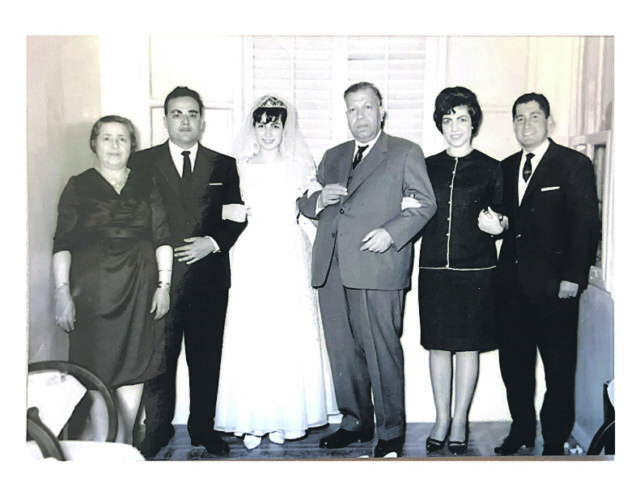
Sarina Roffé
Murad and Linda Guindi married in Aleppo in April 1962. Murad had tried to escape once by going through Lebanon. He was caught, jailed for six months and beaten. The first time Murad came to New York legally was in 1975 when he came for two months with his
mother. Linda had stayed behind with the children and Murad had posted bond.
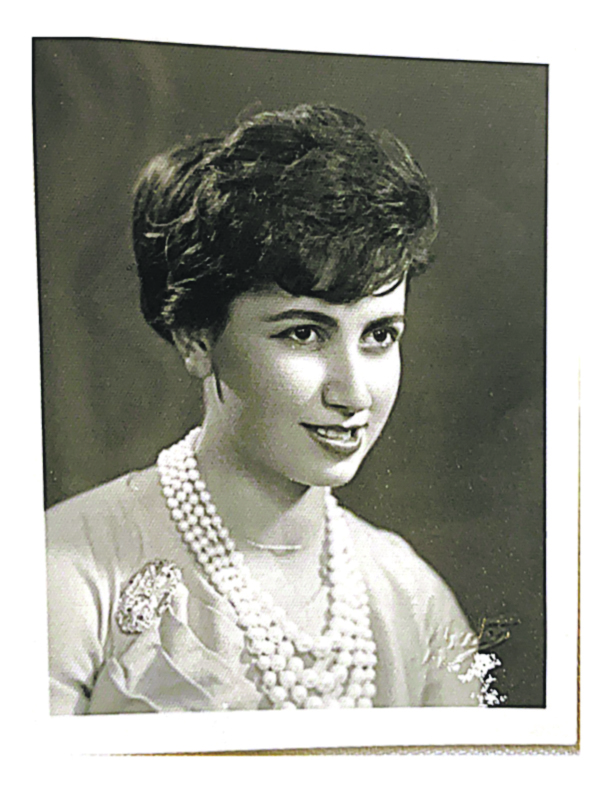
to Murad Guindi in 1962.
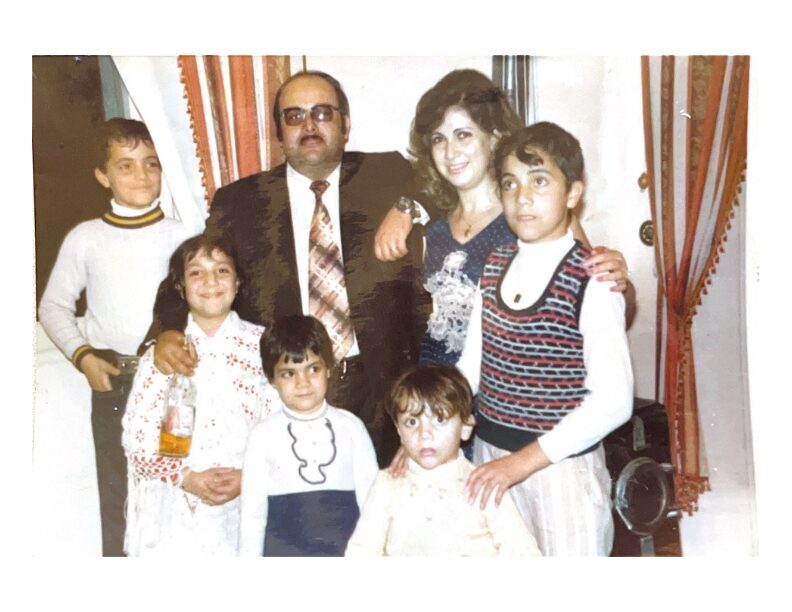
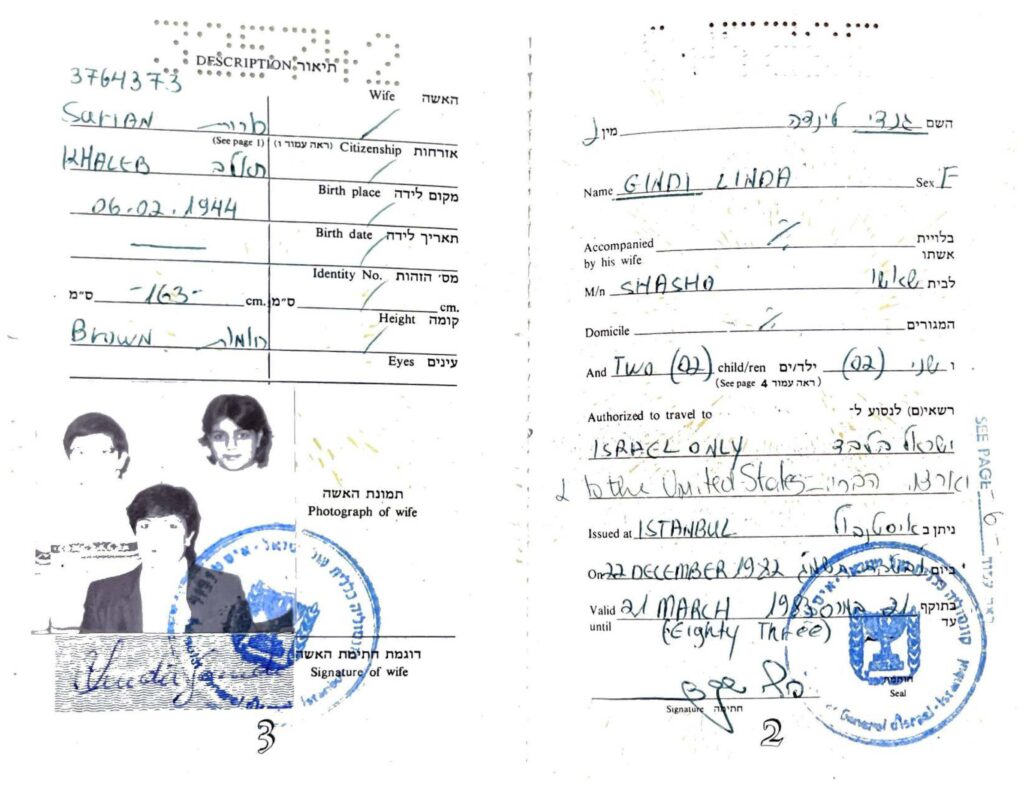
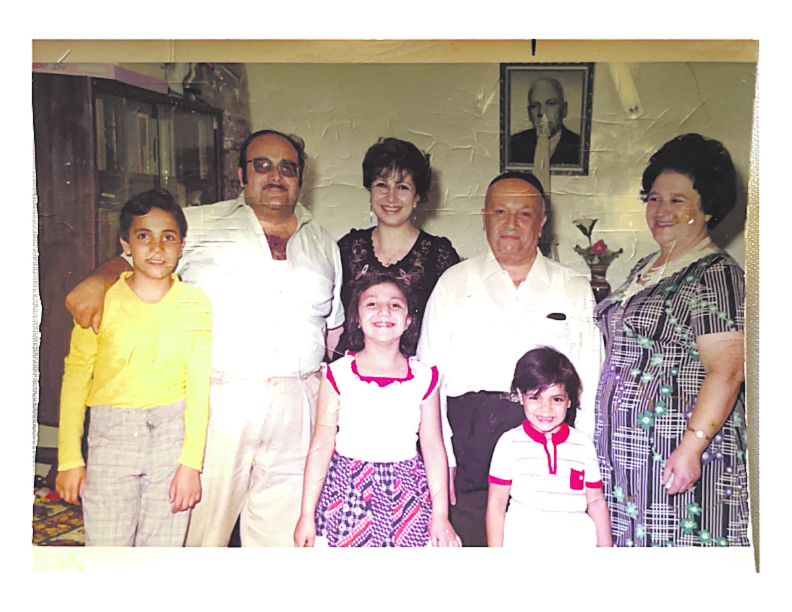
Linda Guindi came to the United States in 1977 and again in January 1981 with Murad and her three sons. They left three children behind. They rented a house in Brooklyn for four months and got green cards. But Linda had to go back to Syria for the other three children – two boys and a girl. There was a change in leadership in the Mukhabarat. Her parents were Rochelle and Yosef Shasho. Her mother came to New York in 1982 to see her brother and remained.
Linda said: Murad and I came to New York again in 1977 with three of our sons. I saw people dancing in the streets with the Torah. And police were in front and behind, protecting the Jewish people. I was so happy to see this and was crying and I saw the freedom to be Jewish. I never imagined there is such a freedom for Jewish people. I was happy and crying because I had to go back to Syria. In Syria, we are scared there to even say we are Jewish. No one wore kippa even on the street and then I knew we had to get out of Syria.
Many people were escaping Syria, mostly young single men, some of whom did not want to worry about escaping with a wife and family. This left many single women with no prospects for marriage. In an agreement with President Jimmy Carter, arrangements were made for 400 young single women to come out for the purpose of marrying proxy husbands. Steven Shalom went to Syria in 1977 to marry all of them as a proxy and bring them to New York where they would marry. The remaining brides, went to France and Canada, among other countries.
The same year Steven Shalom and Congressman Stephen Solarz came and got the brides out. I invited them to my home in Aleppo and they came with Bert Chabbott, who was Shalom’s uncle. I served them on my best tablecloth from China. In Aleppo we eat with bowls and spoons. Not on flat plates and not with forks. I never saw a fork till I came to New York. When I first came to New York, they invited us and I saw three forks and two knives and I didn’t know what to do with them I didn’t start eating until I saw what other people were doing. I was so embarrassed.
At the beginning of 1980, there were a few Jewish women who were raped by the Mukhabarat. They told the wives “If you say anything, we will kill your husband.” One of the husbands came home and saw his wife laying there, in shock and frightened. Those families were allowed to leave Syria legally. At the time, there was a change in the Mukhabaret and Murad was afraid. The Mukhabaret wanted money.
In early 1982, Murad got a new passport and left Syria. Linda and Murad could not call or write letters to each other. But Murad tried to get Linda and the three children–daughters age 12 and 14, and a son, age 9–out of the country through smugglers. She was 38. It took three attempts.
The first time she was going to escape, Linda realized the Mukhabarat was following her. At the time she didn’t drive. They followed her on foot. Another family was supposed to escape with her. It was a Thursday and because she didn’t want to be problem, they went without her and received a code after that they had gotten out safely.
In December 1982, someone came from Harun Shamosh in Iskenderun, Turkey, to make arrangements to smuggle them out of Syria. She didn’t have any warning and didn’t trust him. He asked for money and had details, but they were details known about the family. She asked him to tell her something no one knew so she could trust him. Since Linda didn’t have any warning or reason to trust him, she was afraid. The Mukhabarat had been sending false agents to homes and they were watching. So she turned the smuggler away.
The government called some community leaders from Aleppo to go to Damascus for a meeting. Linda’s brother-in-law, Shaul Shacalo, was at the meeting. The Mukhabarat sent a message that they knew she was trying to escape. They said if Linda was caught, they would slash her throat with a sharp knife. Shaul never told Linda until after she had gotten out safely.
She asked her brother Murad Shasho to give the smuggler a code word and if someone came with a code word, she would go. It had to be with numbers. Numbers below five would mean it wasn’t safe. Numbers above five meant it was safe.
As a woman alone with three children, Linda was in fear for their lives and felt she needed a man with them. At the time, another family had tried to escape and the man fell along the way. He couldn’t continue on the arduous journey, so they had to return to Aleppo, where he was put in jail. More women were being raped and a few murdered to send a message to their husbands.
Linda said: I was frantic and ready to leave. Because I was being followed, I didn’t even want to go home. My children and in-laws were at home. That night, I slept in my sister’s Fortuna’s house and then got a call from my sister-in-law Nadia in New York. She said the children needed clothing in sizes 9, 8 and 7. These were not the sizes of her children, but they were the code that told me the smuggler was okay and it was safe to escape. I told them to send the clothing because it’s very cold and I need the clothing. And they sent the smuggler.
A third smuggler came and arrangements for a time and place were made. I was still being followed. I was learning to drive. The guy from the Mukhabarat was following me was on foot so we took the car and it worked. We picked up kids from different places.
My nephew Selim Guindi followed me in my car to bus stop, which was the meeting spot. We went 30 minutes early and we agreed that if he saw something wrong he would signal me. He didn’t see anything and I was more at ease because he was with me. If it wasn’t for my nephew, I couldn’t do it. We left December 8, 1982 through the mountains and into Turkey.
The night of the escape, it turned out to be a different person. The fear intensified. We were told to wear plastic boots, a double set of clothing and to bring my jewelry. He was drunk. I thought the smuggler would rob me on the way, so I didn’t bring any jewelry.
It was a moonless night when we drove into the mountains to the Turkish border. At some point we stopped and had to walk for 10 hours to a remote area of the border where the smuggler cut the fence and held it up for us to crawl under. There are three rows of fence and we had to get through all of them without being seen by the border guards. The border guards had orders to shoot. We passed under the first fence and crawled to the second fence. It was a cold night in December, Hanukkah, and there was snow on the ground. We fell many times. Once in Turkey, we still had to cross the street without being seen. It was about 5 a.m. when we got to the smuggler’s house, where we were allowed to rest and get something to eat. Then another smuggler took us to Iskenderun to the home of Harun Shamosh. We were still not safe as we had no papers.
Once in Iskenderun, we were filthy and muddy, so we cleaned up and they threw away our clothing. Harun’s daughter got us new clothes. He arranged for a bus to take us to Istanbul. The bus stopped every hour. It was Shabbat. In Istanbul, we reported as refuges at the Israeli Consulate.
Harun came on the bus with us to Istanbul. We had to pretend we didn’t know him. He sat in the very back of the bus. If there was a problem, we could say his name We were scared because we had no papers. But they didn’t ask a woman with three kids.
In Istanbul, Linda met with the Jewish Agency and they gave her a laisse passez to go to Israel. El Al was on strike, so they sent a plane just for them. They were in Israel for two weeks. Linda’s green card had expired and It turned out she had to leave the three children in Israel with her brother. But at least they were safe in Israel.
She flew to New York but again was afraid because her green card had expired and she had no luggage. Trembling, she went through U.S. Customs and they believed her story that she was not allowed to leave Syria. She then made arrangements to get passports for her children to bring them to New York. The family was finally reunited in April 1983.
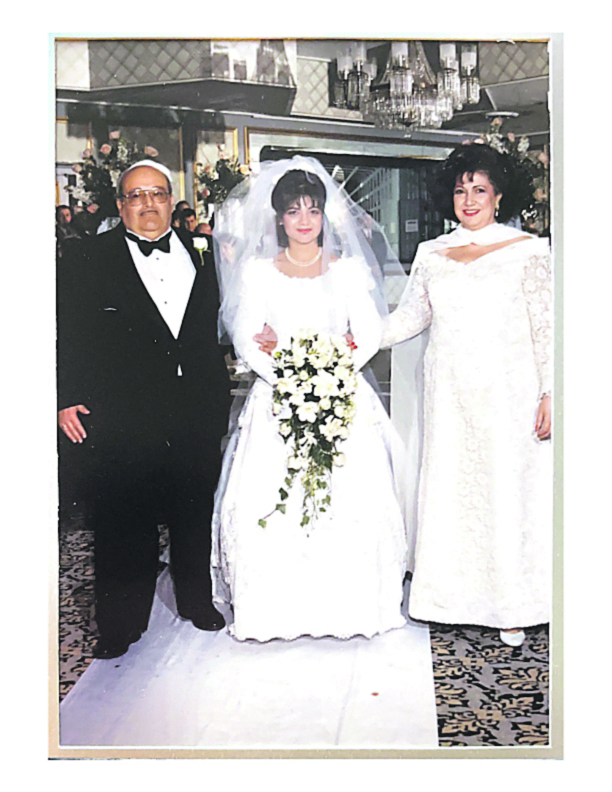
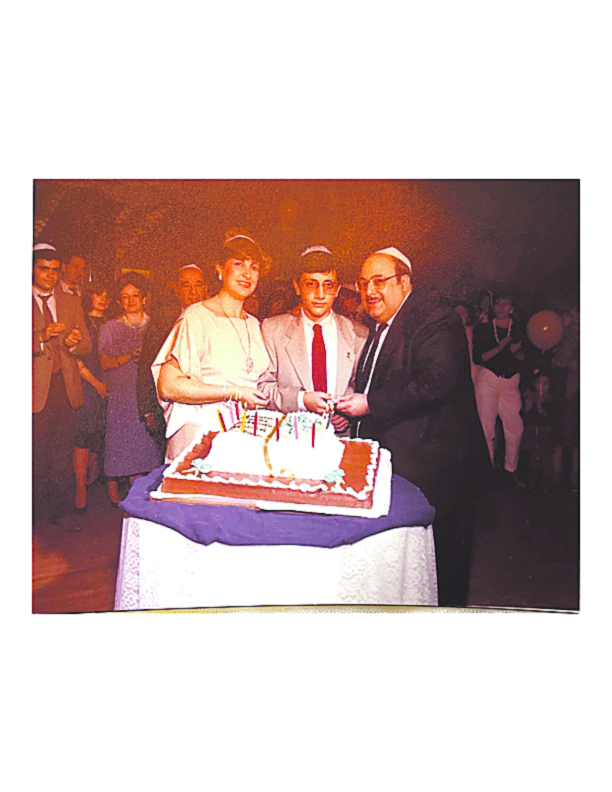
bar mitzvah in New York.
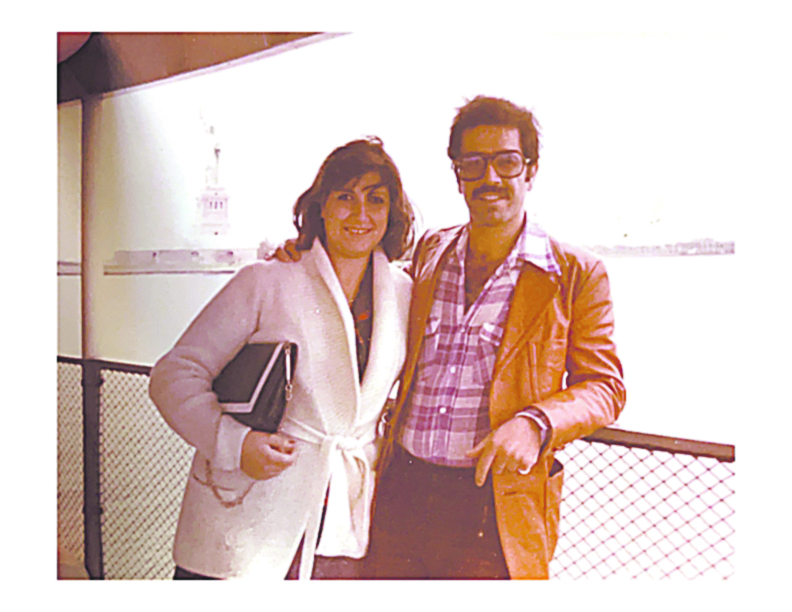
A genealogist and historian, Sarina Roffé is the author of Branching Out from Sepharad (Sephardic Heritage Project, 2017). She is researching a new book: Syria – Paths to Freedom. Sarina holds a BA in Journalism, an MA in Jewish Studies and an MBA.



